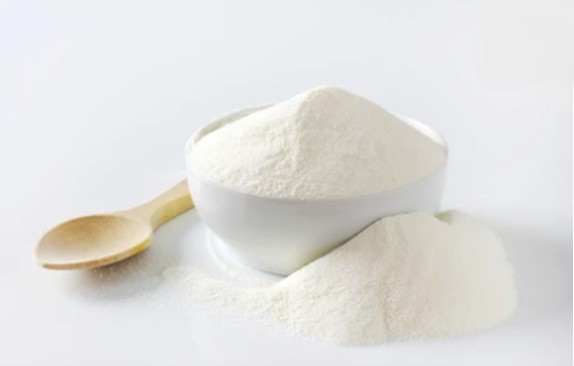
One of the main purposes of milk testing is to ensure that milk and milk products are safe for consumption. Milk and milk products are consumed by a large portion of the population and can potentially pose a health risk if they contain harmful substances. Especially in the case of infant formulae, it is even more critical to detect the presence of harmful substances. In addition, detecting harmful substances in raw milk facilitates the production management of milk products. Lifeasible helps detect harmful substances in milk and milk products to help make sure their safety.
We help to determine antibiotic residues in milk and milk products. The antibiotics we test for include tetracyclines, β-lactams, macrolides, aminoglycosides, sulfonamides, trimethoprim, and nitrofurazone. We help detect antibiotic residues by multiple methods, including the tube diffusion test, the HPLC method, the LC-MS/MS method, the SFC method, and immunoassay.
Determination of organochlorine compounds
Organochlorine pesticides and polychlorinated biphenyls are organochlorine compounds that may be present in milk and milk products. They are harmful to humans in several ways and can accumulate in the human body. We help detect these two types of toxic organochlorine compounds in milk and milk products. We mainly carry out measurements using the gas-liquid chromatography (GLC) method.
Determination of melamine and cyanuric acid
Melamine is nitrogen-rich and is used illegally as a protein substitute. Cyanuric acid is a derivative of melamine. They are nephrotoxic. We help detect melamine and cyanuric acid in milk and milk products based on LC-MS.
Determination of microbial toxins
Microbial toxins and some metabolites of microbial toxins affect the safety of milk and milk products. We help detect many microbial toxins, including staphylococcal enterotoxins and mycotoxins. We also help detect derivatives of residual toxins, such as aflatoxin M1, the metabolite of aflatoxin B1 in the liver. We help enrich toxins or toxin metabolites based on methods such as immunoaffinity and dialysis, and then we perform the determination.
Heavy metal contamination is always a concern, and we help detect multiple heavy metals in milk and milk products, including calcium, mercury, lead, arsenic, and chromium. We can detect heavy metals based on a variety of methods, including ultra-violet (UV-Vis) spectrophotometry, atomic absorption spectroscopy (AAS), Atomic fluorescence spectrometry (AFS), X-ray fluorescence spectrometry (XRFS), and inductively coupled plasma-mass spectrometry (ICP-MS).
Determining whether a food additive exceeds the standard
Excessive food additives in milk and milk products can also pose a health risk, such as benzoic acid and sorbic acid. We help test the levels of many food additives in milk and milk products to help verify their safety.
Determination of nitrate and nitrite
We also offer services to help determine nitrate and nitrite, which can harm health in excess of their levels.

Comprehensive detection of hazardous substances
We can help detect many harmful substances, including antibiotics, organochlorine compounds, melamine and cyanuric acid, microbial toxins, and heavy metals.
International standard level
All of our services meet international standards. And we have trained and skilled testers to ensure the accuracy of our measurements.
High-efficiency determination
Based on our laboratory management system, we have developed a fluent process for testing harmful substances. We can help complete the tests efficiently.
Lifeasible generally helps detect these harmful substances based on international standards. We also offer other convenient methods for detecting these harmful substances. If you have specific testing needs, please do not hesitate to contact us, and we guarantee you a customized and attentive service.
Lifeasible has established a one-stop service platform for plants. In addition to obtaining customized solutions for plant genetic engineering, customers can also conduct follow-up analysis and research on plants through our analysis platform. The analytical services we provide include but are not limited to the following:
Get Latest Lifeasible News and Updates Directly to Your Inbox
Mechanisms Regulating Plant Chloroplast Biogenesis
April 15, 2025